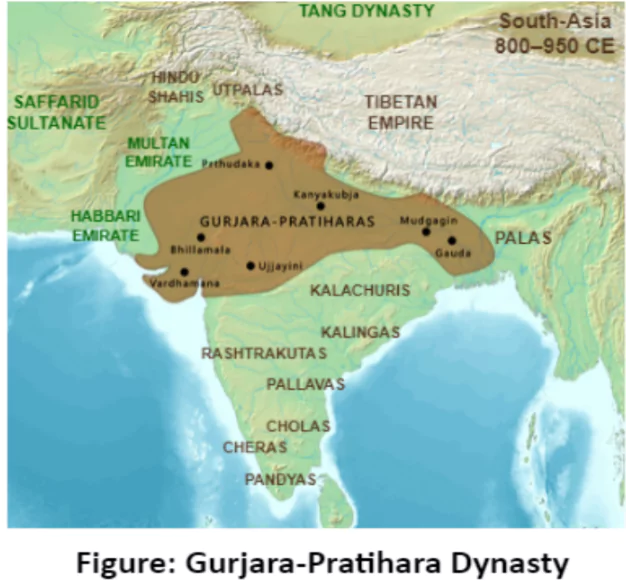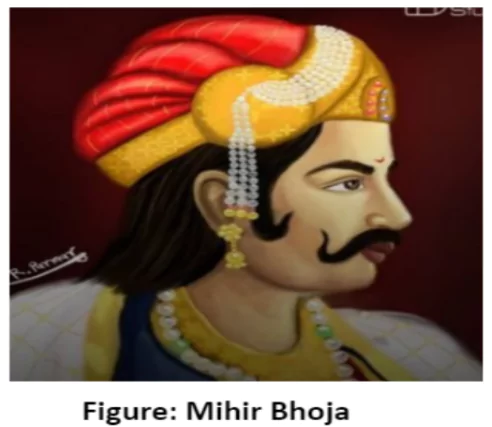![]() May 14, 2024
May 14, 2024
![]() 10828
10828
![]() 0
0
The Gurjara Pratiharas, also known as Agnikula Rajputs, established a powerful dynasty ruling over Kanauj for centuries. Originating from Gurjaras, they rose to prominence in the 6th century CE, with Nagabhatta I founding the dynasty in Malwa. Their rule saw territorial expansion, notable rulers like Nagabhatta II and Mihir Bhoja, and patronage of arts and literature.

 Mihir Bhoja (836-885 AD), around 836 AD marked a pivotal point in Pratihara fortunes. [UPSC 2022]
Mihir Bhoja (836-885 AD), around 836 AD marked a pivotal point in Pratihara fortunes. [UPSC 2022]| Must Read | |
| Current Affairs | Editorial Analysis |
| Upsc Notes | Upsc Blogs |
| NCERT Notes | Free Main Answer Writing |
The Gurjara Pratiharas left a significant mark on Indian history through their enduring rule, territorial conquests, and cultural patronage. Though facing eventual decline due to external pressures, their legacy lives on through their architectural marvels, literary contributions, and role in shaping the religious landscape of medieval India.
<div class="new-fform">
</div>
Latest Comments